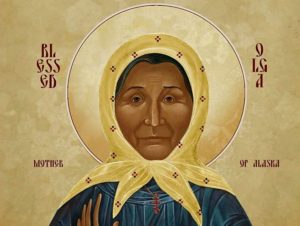Dear Very Reverend and Reverend Fathers,
At our Clergy Convocation held May 7-9, 2012, we discussed to a lesser or greater degree various aspects of diocesan and parish life. Much of what I put forth came about after reflecting on my parish visits from the time of my election through the convocation — my first as your bishop. It was during these pastoral visits that it became evident to me that consistency of practice was something that was needed within the Diocese of the Midwest.
As the bishop of the diocese, I then offered various directives during our discussions that I would like to see applied concerning clergy and parish life within our diocese. I asked that three of these directives be implemented at various times over the coming year, for by doing so, I feel that this will help bring a sense of consistency of practices within the Diocese of the Midwest.
It took just hours after the convocation’s conclusion for some priests to begin sharing their own personal thoughts and viewpoints on our discussions and the directives I had given. Not only was this done within the parish setting but, sadly, it was also carried out via the Internet. Of course, I didn’t expect everyone to agree with me, but I also didn’t expect that priests would take sides publicly, using the Internet to cast a vote for being for or against the directives and points of discussion. This discussion in a public forum has led to confusion, rumor and even division — definitely not what I had intended.
The three “main” directives that were discussed are being presented herein in written form. I have chosen to elaborate a bit on the directives that were discussed and to post them on the diocesan website as well. Hopefully, by elaborating and posting them publicly, the directives will not be misinterpreted and rumors may be quelled.
1) INDIVIDUALS HOLDING COMMUNION CLOTHS. Beginning September 1, 2012, I would like those holding the Communion cloths to be individuals who have been trained to hold it properly, in order to avoid any possibility of an accident occurring during the distribution of Holy Communion. As the Communion cloth itself may lie on the holy table, it too should be considered a sacred vessel of the Church, along with the tabernacle, antimension, Gospel Book, hand cross, chalice, discos, and spoon, which also rest upon the holy table. The reserved Sacrament and those items used for the celebration of the Divine Liturgy are the only items that should be permitted to lie on the altar.
It can be said that those who hold the Communion cloth are, in fact, assisting the priest with the distribution of the Holy Eucharist. Therefore, I would like the task of holding the Communion cloth to be reserved for those designated by the Church to do this. In hierarchical order they are: first, deacons; second, ordained sub-deacons; third, blessed sub-deacons; fourth altar servers; and lastly, those that are allowed within the sanctuary. Possibly, in some parishes, the need to have more ordained sub-deacons needs to be addressed.
Following our convocation, it was insinuated within various communications forums that I am “anti-female” or “insensitive” to women or girls because I do not want them holding the Communion cloth. This is simply a distortion of my words, and I see it as a blatant reaction against the application of Church order.
I would suggest that the practice of having young girls hold the communion cloth is very reminiscent of the Roman Catholic practice of Eucharistic ministers. I will also go so far as to say that to have females hold the Communion cloth solely as some sort of “token liturgical function” so that they feel “included” or have a “tangible job” does not reflect the role of women within the Church — or of any of the laity for that matter — and is degrading to females. The mentality of “needing something to do” is what actually fosters and feeds into a false notion of clericalism, another point that has been debated by some since the convocation. This mentality implies that unless women and girls are given some sort of “liturgical function,” their presence at and participation in the sacred services is of less significance than it is for men. When speaking of the laity as a whole, it implies that unless the laity have some sort of “function” or “job” to do during the services, their presence and participation during the sacred services is of less importance then that of the clergy. On both accounts, this is simply untrue and not a proper understanding of our Holy Tradition.
I could say that in any parish community, approximately 5% of the congregation are blessed to be servers in the sanctuary. What about the other 95%? Do they not participate in the divine services in important and meaningful ways? Is standing in prayer, reading, and singing the responses less important than assisting the priest in the altar or holding a Communion cloth? Those who assist the priest in the altar have a specific job, so that the priest, whose role is to be the celebrant of the services, may focus on prayer rather than the tasks that are carried out during the services. Those who sing, read and pray are doing the same thing as the priest, by offering their prayer and glorifying God, but in a different yet equally important role. It could be said that they do have a specific job, but it is carried out in a different role.
2) BAPTISM. The following instruction becomes effective January 1, 2013, thus allowing time for adequate teaching and preparation of the faithful. The entire Office of Holy Baptism is to be served as set forth in all of the approved Service Books (for example, the Service Book of Hapgood, The Great Book of Needs, Vol. I, available from STS Press, and the pocket-size Baptism booklet available from SVS Press). Then, the Divine Liturgy is to be served in its entirety, without the omission of the Antiphons, for example.
It is my understanding that a small minority of priests in our diocese has adopted the practice of merging the two services into one service, known as the Baptismal Liturgy. I believe this was done with pious intentions, i.e., to move from treating Baptism as a “private” or “family” ceremony, to what it should be — an initiation into Communion with the Holy Church in which the entire Body of Christ can joyfully participate.
Given proper teaching, this communal approach can be maintained without the need to abbreviate and to intertwine services that have been handed down to us in a certain order. Obviously, the one who has been baptized and chrismated must then receive the Holy Eucharist.
The faithful come to the Liturgy on the Lord’s Day to participate in the fullness of the Sunday Divine Liturgy. When a baptism takes place during the Divine Liturgy, I would argue that the Baptism becomes a distraction and that the focus of the Liturgy becomes the Baptism itself, rather than the reception of the Holy Eucharist.
With these things in mind, I am allowing the following options:
- Baptism followed by Divine Liturgy on Sunday
- Baptism followed by Divine Liturgy on Saturday
- Baptism on Saturday and Divine Liturgy on Sunday
Please note that the above applies not only to Baptism, but also to the reception of converts by the appropriate means, whether it be by Chrismation or by Confession.
3) GREAT FEASTS THAT FALL ON A WEEKDAY. Concerning the practice of serving a Vesperal Liturgy on the eve of a Great Feast, discussed at length at the convocation, it seems that my statement with regard to the topic of Vesperal Liturgies as “something that we would revisit next year” has caused confusion, and some have misinterpreted this to mean that if parishes rally around the celebration of Vesperal Liturgies, I will allow them to continue. This is not the case. I did not want to force the practice of ending them immediately, but gradually over the coming year. What I had hoped was that when we do revisit the discussion next year, those who had been previously served Vesperal Liturgies in their parishes would be afforded another vantage point for discussion, inasmuch as they will have begun the process of implementing the services according to the rubrics and Typikon of the Church — i.e., either serving Vigil or Great Vespers on the eve of the Feast, followed the next day by the celebration of the Divine Liturgy.
What concerns me is when Vesperal Liturgies are served in lieu of the prescribed services, we lose half of the Vespers, the entirety of Matins, and the Festal Antiphons – the majority of the theological content of the “propers” of the feasts. This leaves no space for a parish community to grow towards a more complete observance of the liturgical cycle.
The Orthodox tradition par excellence is to serve Vigil on the eve of the feast. However, this may be abbreviated to Great Vespers with Litya (keeping Vigil as a goal towards which to grow). While it is true that people with day jobs will most likely only be able to attend the evening service, at least they will be fed with the riches of Orthodox teachings regarding the feasts. Since most of the faithful of our Diocese frequently partake of the Holy Eucharist on Sundays, there is less urgency to partake also on the Great Feasts.
The Orthodox Tradition par excellence is to serve the Divine Liturgy on the day of the feast. However, the Divine Liturgy may be replaced with the Typika, if truly necessary (for example, if there are no singers). In either case, the service should be scheduled so as to accommodate the priest and the maximum number of faithful. Changes to the service times to accommodate a particular parish community is a pastoral decision well within the responsibilities of the rector or priest-in-charge of a parish; changes to the prescribed Typikon are not.
When a Great Feast falls on a weekday, perhaps it would be best for a particular parish to serve the Divine Liturgy very early in the morning (for example, at 6:00 a.m.), so that people can participate before going to their jobs. By no means should it be postponed to the evening of the feast day, nor transferred to a Sunday.
The rubrics of the Church prescribe the celebration of special Vesperal Liturgies only on certain fasting days — the Eves of the Nativity and Theophany, Annunciation, Holy Thursday, and Holy Saturday. These, of course, are to be served as prescribed. These are the only Vesperal Liturgies permitted according to the Typikon and the only days Vesperal Liturgies are to be served within the Diocese of the Midwest, with the following exception:
If a priest has full time secular employment, and because of his secular job is unable to serve the Divine Liturgy on the morning of the Feast, the Vesperal Liturgy may be served on the Eve of the Feast. If the possibility exists to serve the Liturgy as prescribed on the day of the Feast, either because his work schedule does not conflict with scheduling the Divine Liturgy on the morning of the feast, or if arrangements may be made with his employer so that the Liturgy may be served on the day of the Feast, then the Liturgy should be served on the morning of the feast, as called for.
Fathers, let us not make changes to our Holy Tradition for the sake of convenience. Let us continue to teach, to exhort, to encourage, and to challenge the faithful. The Roman Church today has no idea what Matins, Vespers and the Hours are. The only thing they have is the Mass. They have lost so much by constantly lowering expectations and doing things for the sake of convenience. Let us keep in tact the deposit of faith that we have inherited, by striving towards the fullness rather than settling for the minimum. Let us not become a Liturgy-only Church.
I know change can be difficult and that many will even resist for the sake of resisting. The reality, however, is that many shortcuts and the watering down of the liturgical cycle and our Tradition as a whole have been put into place for the sake of convenience. That which our Lord Jesus Christ revealed to us, and that which the Church has entrusted to us, has not been given for the sake of convenience. I would rather rely on the Holy Traditions of the Church, handed down to us since apostolic times, than on traditions newly developed over the past few decades. Let us be faithful to the Holy Traditions handed down to us from the Holy Apostles and the Holy Fathers of the One, Holy, Catholic and Apostolic Church.
Before any deviation from these norms set forth in the above directives, the priest should approach me for a blessing. Be assured of my prayers for your ministry.
With love in Christ,
Bishop Matthias



